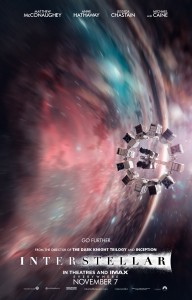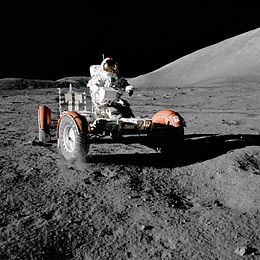“Interstellar” merges space and opera in the best possible way
 Every once in a while, though less often as I get older, a work of art lands in a kind of sweet spot that seems tailor-made to my own weird sensibilities.
Every once in a while, though less often as I get older, a work of art lands in a kind of sweet spot that seems tailor-made to my own weird sensibilities.
I’m a huge fan of science fiction. The idea that humans should find a way to climb beyond our earthly cradle has long struck me as the most hopeful and common-sensical big idea to emerge from the 20th century.
I’m also a huge fan of opera. I love the muchness of it, the sense that stories don’t have to quite hang together, the idea that all the rules of theater and storytelling can be tossed out the window at any given moment so long as the music and the spectacle carry the experience forward.
So when I landed in the movie theater this weekend to watch Christopher Nolan’s “Interstellar,” I found myself in that little wedge of the Venn diagram where those two disparate worlds — opera and hard sci-fi — overlap and merge.
In case you’ve missed the hype, Nolan’s film describes a dystopian future a few decades out from present-day. Humans are scrambling to find a way to survive on our environmentally damaged planet and the best solution seems to be giving up and going elsewhere.
The story is a big creaking carnival ride of ideas, stuffed with black holes, time dilation, climate change, atmospheric degradation, alien ghosts, interactions with the fifth dimension and some really cool post-Hal 2000 robot computers.
Overlaying it all is a magnificent, meditative score by Hans Zimmer. You can hear a chunk of it in this Youtube video, though like most music scores, this one works best when crammed in with the visuals.
The story and the music of “Interstellar” are far from flawless. Parts of it — like most opera and most space-opera — don’t hang together at all. Major developments are telegraphed in quick bits of dialogue and exposition.
But the effect is still astonishingly powerful. You are submerged in a sense of change and transition, an experience both sorrowful and profoundly hopeful. One feels the emptiness and hostility and potential of space beyond our world.
In the end, it’s hard to know if our species will ever make it off this third rock from the sun. Our space program hasn’t landed a human being on another planetary object since 1972.
In one particularly painful passage of the movie, it has become conventional wisdom that the lunar landings never occurred. They were a fiction, a bit of propaganda.
But Nolan has given us a taste for what the first steps of a future diaspora might feel like. He also crafted a story that gives some glimpse into the remarkable vistas that science has begun to glimpse, horizons of possibility that would have seemed like, well, science fiction a few years ago.
Some people have compared Interstellar to “2001,” Stanley Kubrick’s sci-fi classic, or to Andrei Tarkovsky’s “Solaris.” But in some ways, this film is more profound. In the final equation, it’s not the tale of humanity’s encounter with aliens or “star children” or living worlds.
“Interstellar” is the story of our journey, our own clumsy, heart-breaking love affair with this earth and the fledgling possibility of an existence beyond it.









I hope, and I doubt we will, find a way to “escape” from this planet and find another planet.
To do what? Ruin it after we ruin the Earth?
Obviously we are the most presumptuous creature to ever inhabit the Earth. And why is that? Because we are clever at creating junk?
This might be a good movie but the idea it offers is no better than moving from one house to another house because you can’t be bothered with cleaning the house you have trashed.
Whoa, that music! There’s nothing there and yet It Is Breathing. And then It Is Chasing Us. And It Is Immense and Nowhere.
I do believe I will redouble my efforts at recycling. Thanks for posting this.
we may find a way to leave earth and populate el$ewhere. I’m wondering more on the methodology u$ed to determine who goe$, and who $tay$.
Well it seems a pretty safe bet that the number left behind would be well over six billion.